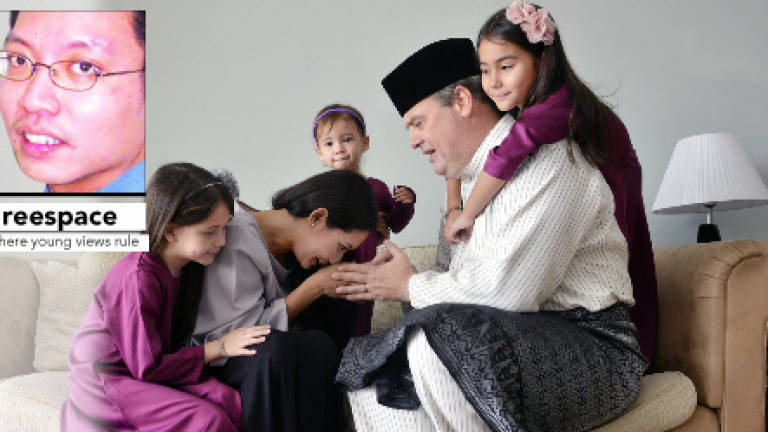Our legacy to our children

FOR some people, becoming a parent is their lifelong ambition or dream. It is such a huge responsibility and task to be a parent, so I admire people who have the courage to want to be a parent. It is a task I would not voluntarily put upon myself.
Recently, a parent even glowed that her humanity and humaneness flowed through from her to her adult child in the good works the latter did; vicariously taking credit for her child’s charitable work. I won’t argue with this but it did lead me to wonder what else should parents take credit for when it comes to their children?
It just so happened that a group of trainers were discussing on the same day that obesity in parents usually ends up with obesity in children, based on a 2004 study by researchers at Stanford. Should overweight or unhealthy or obese parents take credit for their child’s ill health as well? Obesity in children could lead to type-2 diabetes, asthma and hypertension, all of which used to be conditions only adults experienced.
Going on the basis that a parent could take credit for the exemplary deeds or behaviour of his or her adult child, should a parent then also take responsibility if their child has always been overweight or unhealthy? Interestingly, another Stanford study put Malaysia as the third laziest country in the world. This was based on the number of steps Malaysians took on a daily basis, a paltry 3,943 steps. The prescribed number of steps per day to lose fat is 10,000.
More damning is the finding that Malaysia is the most obese nation in Southeast Asia. The Economist Intelligence Unit reported in “Tackling Obesity in Asean” that the prevalence of obesity in Malaysia was at 13.3%, while those being overweight was at 38.5%. To put some dollars and cents to that, basically ill health arising from being obese or overweight cost the country between RM4.26 billion and RM8.53 billion, about 10% to 19% of Malaysia’s healthcare spending.
The Tackling Obesity Report also stated that Malaysia had the largest number of lost productive years arising from obesity among females, which was between seven and 12 years, and the second highest among males at between six and 11 years.
Interestingly enough, in the West, there is a debate if obese people should pay more for medical insurance.
The question for me is whether parents of obese children should also bear part of this responsibility.
Bruno Kistner from the Asia Roundtable on Food Innovation for Improved Nutrition (Arofiin) secretariat, who presented the “Tackling Obesity in Asean” report, was reported to have said: “The report showed that only a third of Malaysian adults had ever exercised, while only 14% exercised adequately.”
If this is the case, it is little wonder that children would learn to shun exercise, rather than to understand physical movement is necessary for the human body.
Let me state though that I have nothing against people who are obese. Obesity is a symptom, not a condition. Dislike of exercise and eating excessively are part of a whole condition, which might be unique from person to person. The question really is whether we might be able to identify that there is something not quite right about being obese and whether this is what we would like to hand down to our children; that this is our legacy to our children.
So you see why being a parent is something I could never do. While it can be so fulfilling to nurture children and stand back with pride while they achieve what we could not, yet we ourselves have so many issues and conditions that we might unknowingly pass down to our children. And that can be incredibly onerous to them, as well as to society as a whole.
Daniel has a passion for health, fitness, sleep and travel. Comments: letters@thesundaily.com